
Creative Writing BA(Hons) (Online)
Turn your writing craft into a successful career.
Course overview
Explore the evolving needs of the marketplace while honing your writing practice on this Creative Writing online degree.
Whether you dream of penning novels, writing for games, creating compelling digital content, or producing award-winning screenplays, join our online Creative Writing degree and graduate with an assured voice – ready to make your mark.
Guided by experienced professionals while actively engaging with peers and industry connections across the globe, you’ll learn to create and publish high-quality written content in a range of formats and platforms.
Why study this course at Falmouth?
- Experiment with your writing from day one, developing and enhancing your craft
- Join a supportive global community of writers and make crucial connections
- Tap into Falmouth’s renowned storytelling legacy from your own location on a Creative Writing degree designed specifically for online delivery
- Work on industry-informed briefs and learn how to turn your writing into a viable career

Interested in studying this Online degree? Join our virtual Q&A on 18 June.
Find out moreCourse details
Exploring the breadth of the creative industries, you'll develop your writing practice and your reflective and analytical skills both as an individual and as part of a team.
You'll experiment with form and prompts, embrace the art of reading as a writer, and learn how to connect with a vast range of audiences.
This online degree will prepare you to join the global creative writing marketplace, equipped with specialist knowledge, an adaptable skill set, and a clear vision of your place within the market.
Course study options
On this accelerated online Creative Writing degree, you’ll have the opportunity to gain a BA(Hons) degree over two years full-time or three years part-time.
From module information to course aims and assessment criteria, discover the full course details:
You'll begin to develop your writing practice and your reflective and analytical skills both as an individual and as part of a team. You'll experiment with a wealth of forms and prompts, gain an awareness of the context of the creative industries, learn the art of reading as a writer and examine the elements and concepts that mediate, influence and challenge your place as a creator.
Modules
Dreaming Up Worlds: Imagination, World-Building and Character
Develop your core fiction writing skills, create characters imbued with life, construct fascinating fictional worlds and understand the principles of storytelling.
True Stories: Creative Non-Fiction and Life-Writing
Develop research strategies for writing compelling creative non-fiction and life writing, and discover how to use creative writing to reach an audience for your true stories.
Post-Digital Writing: Idea, Concept, Platform
As a writer engaged in finding your own voice across platforms in contemporary cultural industries, you'll experiment with a wealth of forms and prompts to expand your practice into the post-digital era.
Society and Identity
Examine the elements and concepts that mediate, influence and challenge your place as a creator and develop your critically informed writing voice.
You'll push the boundaries of your discipline to extend and enhance your writing, entrepreneurial and critical skills. You'll work in teams to create and publish innovative content, while exploring and analysing audience reception. You'll also have the opportunity to develop your writing and analytical skills across different genres and forms.
Modules
Writing for Screen Media: Games, Film, TV
You'll experiment with the formal constraints at the interface of writing and the digital world.
Bound by None: Place and Adventure
Develop your travel, place and nature writing skills, alongside critical approaches to exploration and environmentalism in this adventurous module.
Writing for Performance: Poetry, Theatre, Comedy
Develop disruptive and engaging writing approaches to reimagine conventional forms in a contemporary context.
Collaborative Project
Working in real-world contexts with other students and industry partners, you'll develop creative working strategies, communication and advanced project planning skills.
You’ll continue to strengthen your industry presence as a writer and be encouraged to submit your work to active calls for submission. You’ll also hone your own voice further with a deep-dive into a genre of your choosing – developing a critical and market-based understanding of its intricacies. All this will culminate in your final project, where you’ll be supported by your supervisor to produce a substantial creative piece in a specific form and genre. You'll take a more entrepreneurial approach to your practice and establish your public persona as a 21st-century writer.
Modules
The Hybrid
Respond to challenges and engage in multidisciplinary work to produce an innovative, multiform piece.
Genres and Disruptive Fictions
Deep dive into your chosen genre and develop a critical, market-based understanding of its intricacies.
Masterpiece: Individual Project
Produce a substantial piece in the form and genre of your choosing and take your practice and your voice further.
Publishing Lab: Entrepreneurial Practice
Develop the framework for your current and future publishing activities, and position yourself with agility in the diverse and changing world of the creative industries.
As part of our process of continuous improvement, we routinely review course content to ensure that all our students benefit from a high-quality and rewarding academic experience. As such, there may be some changes made to your course which are not immediately reflected in the content displayed on our website. Any students affected will be informed of any changes made directly.

Got questions about the course, funding or online study?
Your Course Advisor Charley is here to help.

Our students and graduates

"We started writing from day one, and each week the learnings were new and inspiring. I found my tribe with my tutors and cohort, and being in a group of diverse creatives and working together to learn our craft was amazing."
Jax Purchase, graduate
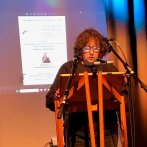
"Falmouth has opened my eyes to endless possibilities and has made my confidence grow; it really has brought out the best work in me. I am now able to write from the heart with an awareness of what is happening in the publishing world."
Helene Du Mauri, student
Stories from our community
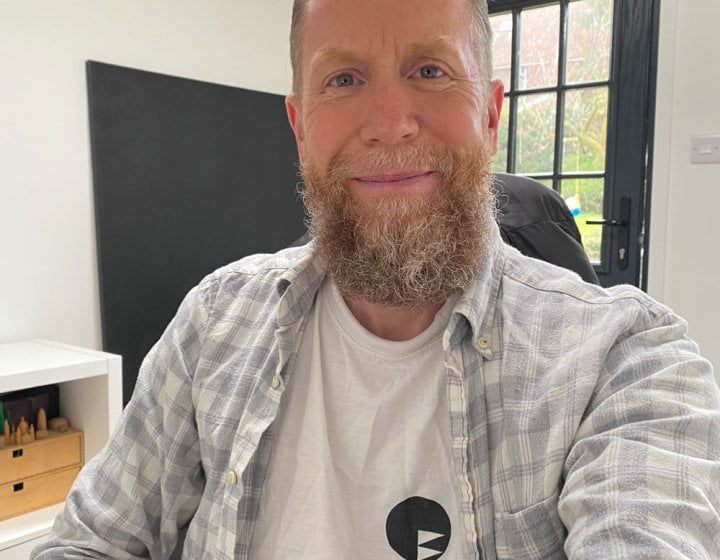
Simeon Berends on a career shaped by curiosity
01 April 2025
When Simeon Berends walked through the doors of a local radio station as a teenager, he was hoping f...

“Have a strong idea at the heart of every creative project,” says James Flint
25 March 2025
After graduating from the Graphic Design BA(Hons) in 2012, James Flint got a lucky break as an inter...

Illustration graduate redraws future in games industry
14 March 2025
Originally enrolled in Falmouth’s Illustration BA(Hons) course, Thomas soon realised that his pass...

Exploring the Future of Gaming with Ryan Norrington
14 March 2025
We’re excited to welcome Ryan Norrington, Creative Director at Metavision, as a guest speaker for ...
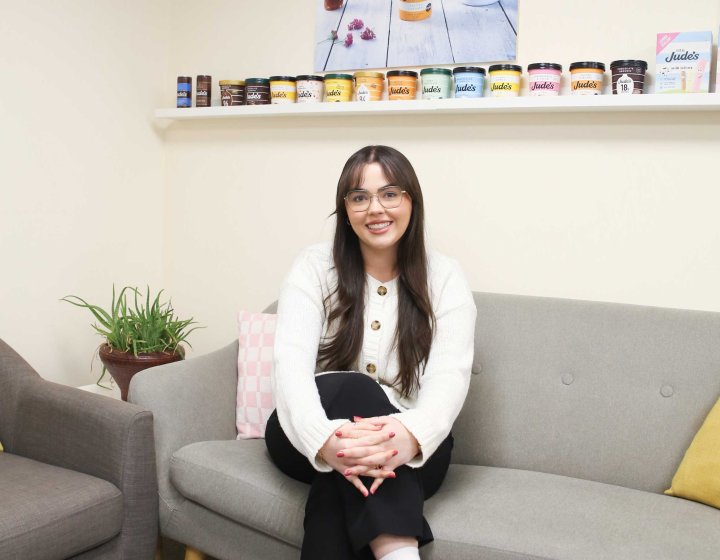
Graduate Spotlight: Charly Richards, Associate Brand Manager at Jude’s Ice Cream
24 February 2025
For Marketing and Digital Communications MA (Online) graduate Charly Richards, her dedication to lea...

Prussia Cove inspires Falmouth students on weekend writing retreat
17 February 2025
Third-year students on Falmouth’s undergraduate writing and journalism courses recently gathered a...
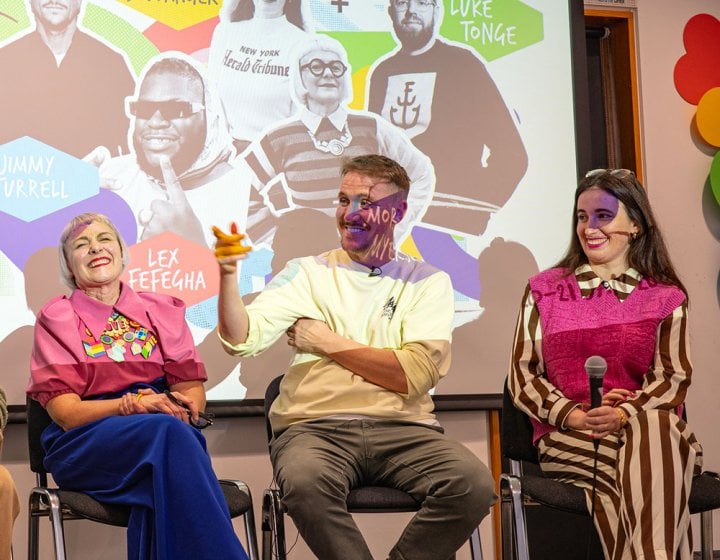
Design advice from five sector-leading creatives
13 February 2025
Students from across our Graphic Design BA(Hons) community recently had the chance to hear the uniqu...

Q&A with Graphic Designer, George Sutton
12 February 2025
George Sutton is a practicing designer - and alumni of Graphic Design BA - with an eye for cross-sec...

‘Design is Play’ Symposium: A Look into our Collaborative Graphic Design Event
10 February 2025
A group of innovative and engaging graphic designers came to Falmouth this January as part of an ins...

Falmouth lecturer publishes new poetry book
07 February 2025
In Damage Limitation, a poetry book in the form of a zine, published by zimZalla, Senior Lecture...
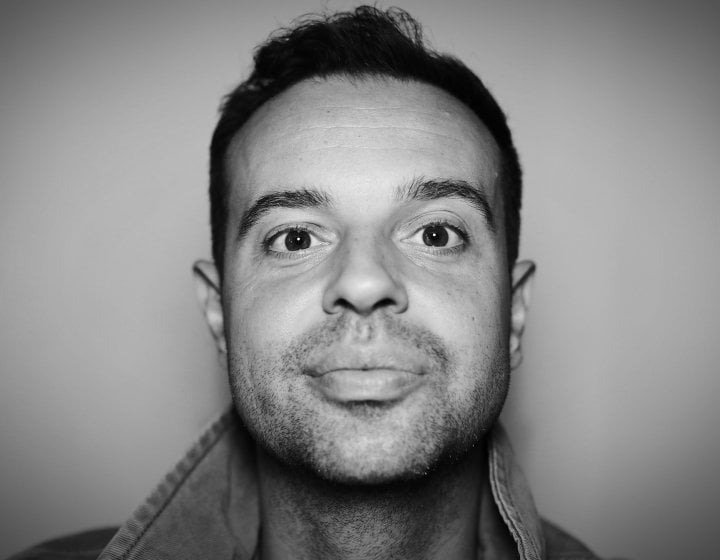
Screenwriting graduate’s short film ‘Going’ makes waves at UK film festivals
29 January 2025
Screenwriter and script consultant Brad Brookes has received numerous accolades for his work since g...

How to get the most out of Screenwriting Competitions
23 January 2025
For many screenwriters, completing a script is a significant milestone - and rightly so. But once th...
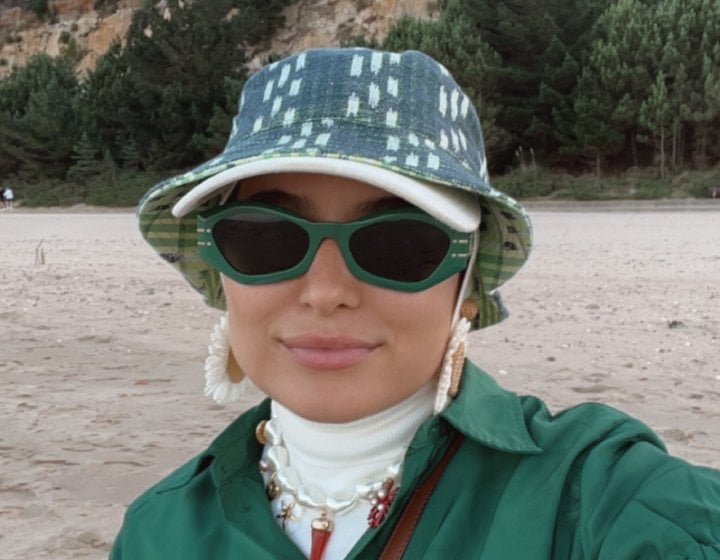
Why I chose to study Graphic Design online
21 January 2025
We chatted to Graphic Design MA (Online) student Dalal Elsamannoudi about her interest in design, he...
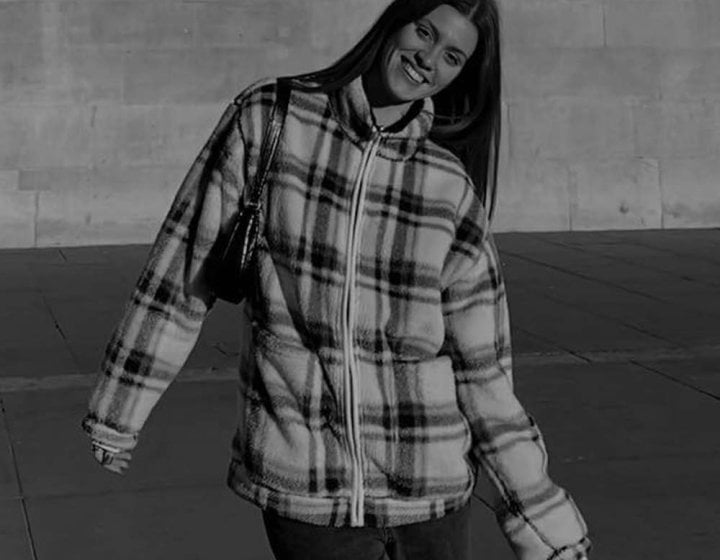
Graduate Anouska Sears: “Design truly has no limits”
06 January 2025
After working and gaining experience at various creative agencies, graduate Anouska decided to switc...
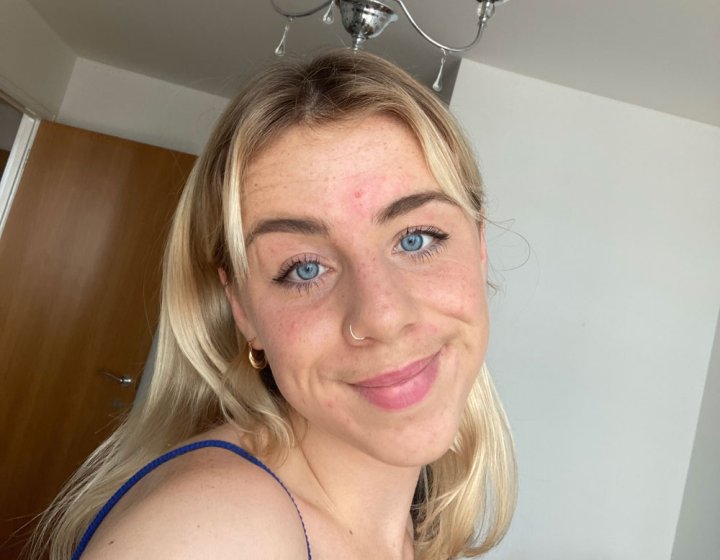
Journalism graduate’s cancer documentary wins short film award at Cannes
17 December 2024
Journalism and Creative Writing BA graduate Tavie Carey’s compelling documentary won the best shor...

Award-winning graduate secures Dreamtime Fellowship at Spike Island
12 December 2024
Communication Design MA graduate Alexis Over-Papatzaneteas has built on his hugely successful D&AD P...

Simon Nicholls and Bridget Christie. Credit: Rachel Riley Photography.
Falmouth comedy writers enjoy masterclasses from the best in the business
12 December 2024
Students and graduates from Falmouth’s online master’s in Comedy Writing met up in London last m...
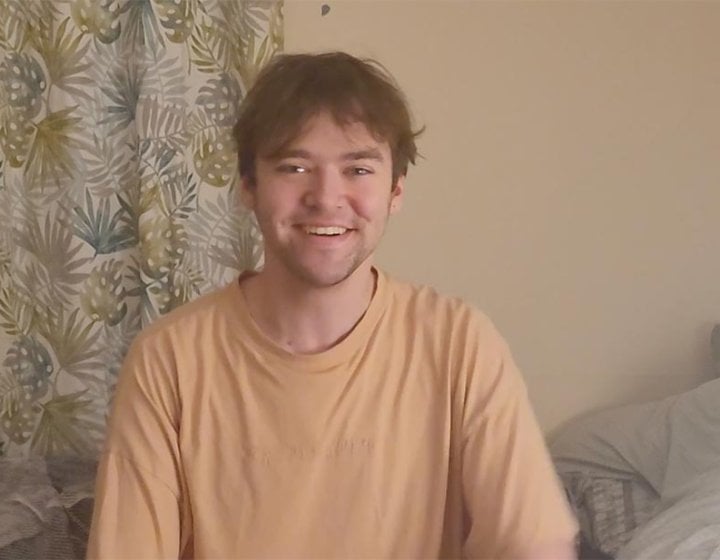
A day in the life of a Graphic Design student
10 December 2024
Follow a typical day of Graphic Design student, Matt.

Graduate Spotlight: Graphic Designer Max Bloom
05 December 2024
From designing merchandise for PJ Harvey to increasing engagement from young people with mental heal...

What can you do with a graphic design degree
14 November 2024
Graphic design offers a pathway to a range of careers where visual storytelling and problem-solving ...
Learning and support
This accelerated online Creative Writing degree is delivered through a combination of lectures, webinars, forums and activities. These will take place through both online events and work undertaken in your own time, through the Virtual Learning Environment.
What sort of activities will I do?
All our activities are designed to support you to achieve the learning outcomes of each module. Each week you'll develop your passion for writing by actively engaging with a variety of forms and genres. Lectures, video and audio resources, extra reading material and interactive activities, are all available online and there are weekly challenges and learning events. Curated readings and resources will challenge and enhance your analytical thinking and taste, and you'll learn by doing to best develop your voice and your position as a writer.
What will my study hours be?
Based on the total learning time for the accelerated online courses, an average study week for full-time undergraduate students can be up to 50 hours, and for part-time students, can be up to 33 hours. As our online courses are intended to be flexible the actual time required to study will vary based on the level of study, the module week, and individual learning pace.
What does accelerated study mean?
An accelerated degree condenses your degree modules into two years on the full-time route, or three years on the part-time route. This means you'll be working across three study blocks per year, instead of two, including through the summer. Typically, there is a break of around two weeks between submitting your final assignment for each module and the start of the next study block. You will also get breaks on public holidays, for around two weeks at Easter and for around three weeks in December.
The BA(Hons) Creative Writing online employs a range of assessments and strategies throughout the course, including formative and summative assessments.
Formative assessment in the form of continuous written and/or verbal feedback takes place across the module through your participation in the different learning activities and webinars, and by exchanging peer feedback on ideas and work in progress. This kind of assessment supports you to develop your writing, critical and reflective skills and to keep up to date with your course work.
Summative assessment takes place on each module, usually at mid-points and at the end of the module. Activities across each module will help you prepare for these assessments. Assessment types include portfolios, reviews, pitches, presentations, reflective journals, case studies, competition analysis, documentation of projects and the final project, which is the major project of the end of your course. At the end of the module you'll receive written feedback and a mark for each assignment via an online feedback system within three weeks of the deadline.
You'll be able to check in with your online tutor to discuss your progress and ask any questions you have about your course.
- Dedicated easy-to-use virtual learning environment (VLE)
- Accessible online audio / visual content
- A Student Advisor to support you throughout your studies and access to our Student Support Services
- Access to our Employability Service
- 24/7 access to Falmouth's extensive online library of contextual books, journals and resources
- Access to online software tutorials at LinkedIn Learning
- Students' Union community
- Optional in-person events
- Invitation to attend alumni events
Although online students don't have access to on-campus facilities as part of the course, you can hire equipment and access facilities by paying a charge. Find out more about availability and prices here.
Meet the team

Dr Marshall Moore
Course Leader and Senior Lecturer
Dr. Marshall Moore hails from North Carolina and relocated to the UK in 2020 after living and workin...

Dr Eoin Murray
Lecturer, Creative Writing BA(Hons)
Eoin Murray is a Welsh writer, game scripter, and ludo-narratologist from Bangor in North Wales curr...

Dr Jennifer Young
Head of People Success
Jennifer Young came to Falmouth in 2019 to take up the post of Head of Writing and Journalism. She o...
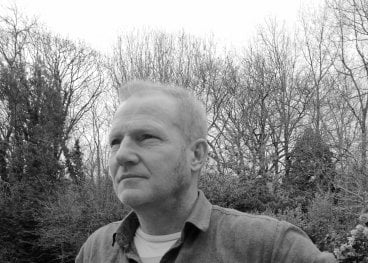
Steve Bough
Lecturer, Multimedia Journalism
Steve has enjoyed a successful 25 year career in the magazine industry with experience writing and e...
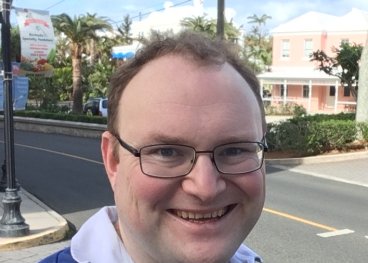
Dr Kit Chapman
Course Leader, Journalism MA (Online)
Dr Kit Chapman is a science journalist with more than 15 years' experience writing for titles includ...
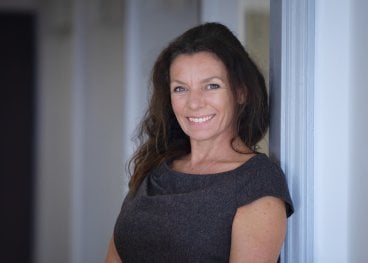
Nicola Coplin
Lecturer
Nic has taught at Falmouth University since 2013. She trained in acting at the Hub Theatre School in...

Andy Dillion
Thesis title: Blood Pours Slower than Rye: Representations of the Irish pub in contemporary crime ge...
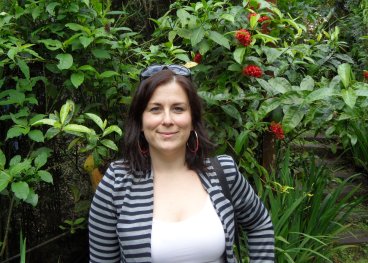
Dr Jo Parsons
Lecturer in English and Creative Writing
Dr Jo Parsons has been a Lecturer in English and Creative Writing at Falmouth University since 2019....

Lynn Huggins-Cooper
Lecturer, Creative Writing BA(Hons) (Online)
I started teaching at Falmouth in January 2023 and it seems longer - but in a good way! I have taugh...
Our staff are fascinated by the immense possibilities of creative writing and the playful, artistic nature of contemporary publishing. Their entrepreneurial engagement with the craft and in-depth discipline knowledge expands across many areas of expertise including screenwriting, writing for games, comedy, business and digital writing, podcast, poetry, young adult and literary prose. With strong connections to the creative industries, they'll help you experience an up-to-date, innovative learning journey with opportunities for industry-based challenges and networking.
Some members of staff only teach on specific modules, and your course might not feature every staff member who teaches on the course.
Careers
As a Creative Writing graduate, you could become:
- A critically informed writer with an adaptable practice
- A novelist or short story writer
- A writer for screen (film, TV or games), proficient in visual and interactive stories
- A digital storyteller or content creator
How to apply
Apply
You have the option to apply via UCAS or directly with us, depending on your education and experience. Find out more about ways to apply.
UCAS codes
You can apply for the September 2025 full-time route through UCAS using:
- University code: F33
- Course code: W8OA
| Course route | Course start | Apply now |
|---|---|---|
| Full-time |
September 2025 |
|
| Part-time | September 2025 | Apply now |

Application advice & interview information
Go to ToolkitFor starting your studies in 2025 the academic start date is 15 September 2025*.
Please note:
*Virtual Welcome Week begins the week before the academic start date. During this time, our Student Advisor team will host Welcome Webinars and be in touch with practical information on how to study online.
We consider all applications on their own individual merit and potential. We invite all applicants to an online interview to give them the opportunity to demonstrate this along with what inspires and motivates them in their field. Applicants will also be able to show their portfolio or give a performance depending on the course. We welcome applications from all subject backgrounds, whether you've specialised in STEM, the arts or humanities.
Course routes & entry requirements
BA/BSc(Hons) degree: 104 – 120 UCAS Tariff points
Check the title of your course to see if it's a BA or BSc award. UCAS Tariff points will primarily be from Level 3 qualifications such as but not limited to A-levels, T Levels, a BTEC/UAL Extended Diploma or a Foundation Diploma.
Check how many points your qualifications are worth
Portfolio
Some of our online undergraduate degrees require you to create and submit a digital portfolio as part of the application process.
Check our portfolio advice pages for more information
Applying without UCAS points
We'll welcome your application if you have formal or 'certified' learning (such as training courses not run by universities or colleges) and learning from work experience or self-study. This is called Accreditation of Prior Learning (APL), and should have been gained within the last five years, and be equivalent to the learning outcomes of our minimum entry qualifications. Find out more about APL.
For applicants whose first language is English we require you to have or be working towards GCSE English Language Grade 4 (C), or equivalent.
If English is not your first language you will need to meet the same standard which is equivalent to the IELTS Academic 6.0 overall score, with at least 5.5 in Reading, Writing, Speaking and Listening. We accept a range of in country equivalencies and approved tests.
If you need a student visa to study in the UK, you may need to take a recognised language test. You can read our English Language Requirements for more information.
For more information about equivalent international qualifications or English language requirements please contact our friendly Course Advisors.
Fees, costs & funding
Tuition fees
| Annual tuition fee | Student |
|---|---|
| £10,400 per year | 2 years accelerated full-time |
| £6,935 per year | 3 years accelerated part-time |
| Annual tuition fee | Student |
|---|---|
| £10,400 per year | 2 years accelerated full-time |
| £6,935 per year | 3 years accelerated part-time |
Tuition fees for September 2026 will be confirmed in summer 2025.
Tuition fees are set annually and are subject to review each year. The University may therefore raise tuition fees in the second or subsequent years of a course, in line with inflation and/or the maximum permitted by law or Government policy. Students will be notified of any changes as soon as possible.
The figures above don't include accommodation and living costs
What funding can I get?
Funding for online study is different to on-campus study. You'll find information about both tuition fees and how you can fund your online study on this page.
Explore funding options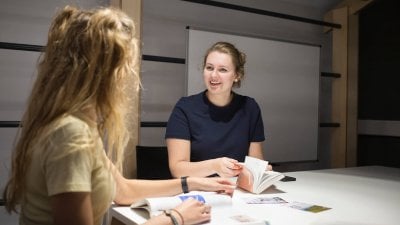
Typical course costs
- £100 - Recurring annual costs for associated course materials
- Varying costs - Optional face-to-face events (typically two per year)
You do not need any specific software and a reasonable home or work computer will work just fine.
Ask a student
What better way to find out about life at Falmouth University than by asking our current students?
From course details and academic support, to the social scene and settling in, our students are ready and available to answer any questions you might have. Simply set up your account, send them a question and they'll get back to you within 24 hours.
Similar courses
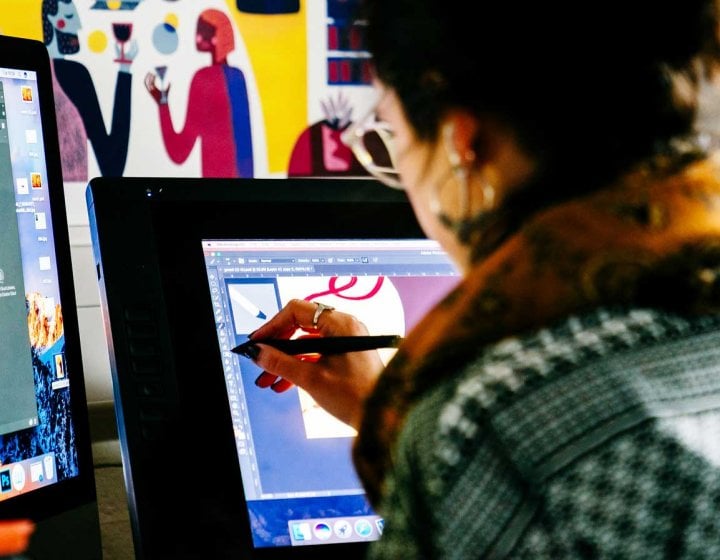
Visual Communication BA(Hons) (Online)
Get ahead in the vibrant, ever-evolving field of visual communications with this exciting online cou...
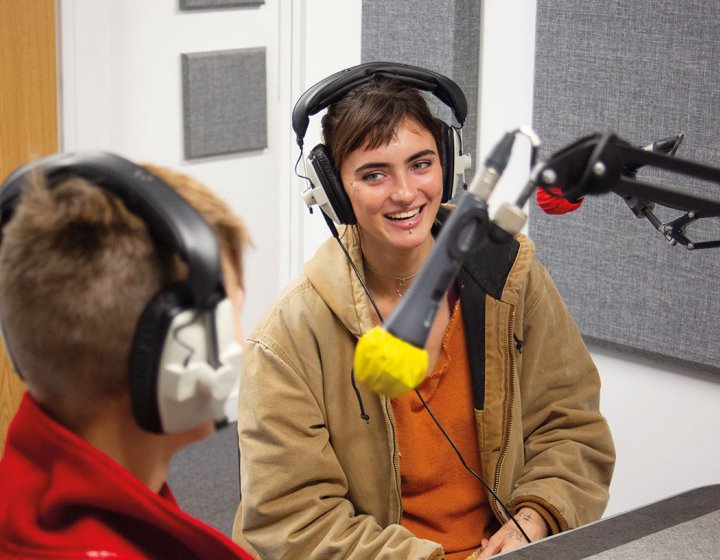
Media BA(Hons)
Today’s fast-paced media landscape is calling out for brave and flexible storytellers. On this Med...

Journalism & Creative Writing BA(Hons)
Kick-start your career as a writer, learning how to analyse, practise and publish all forms of journ...
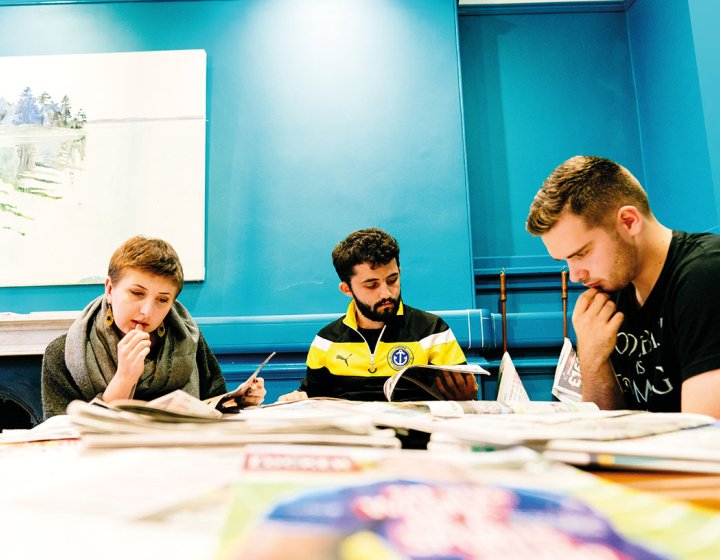
English & Creative Writing BA(Hons)
Join a celebration of literature and writing. You’ll read critically and widely, learning about hi...
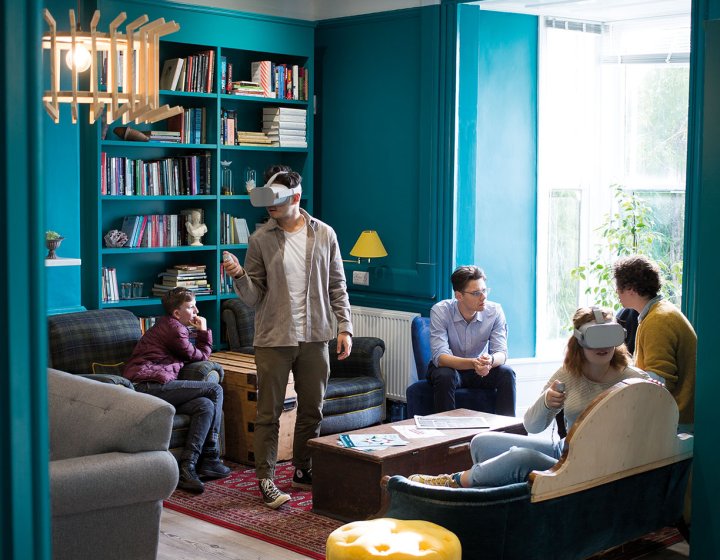
Creative Writing BA(Hons)
Experiment with all forms of writing to find your passion and develop your writing voice. Explore au...
Virtual Open Days & events
Head to our Open Days & events page to see upcoming virtual Open Days and online events covering everything from student funding to application advice.
Find an event